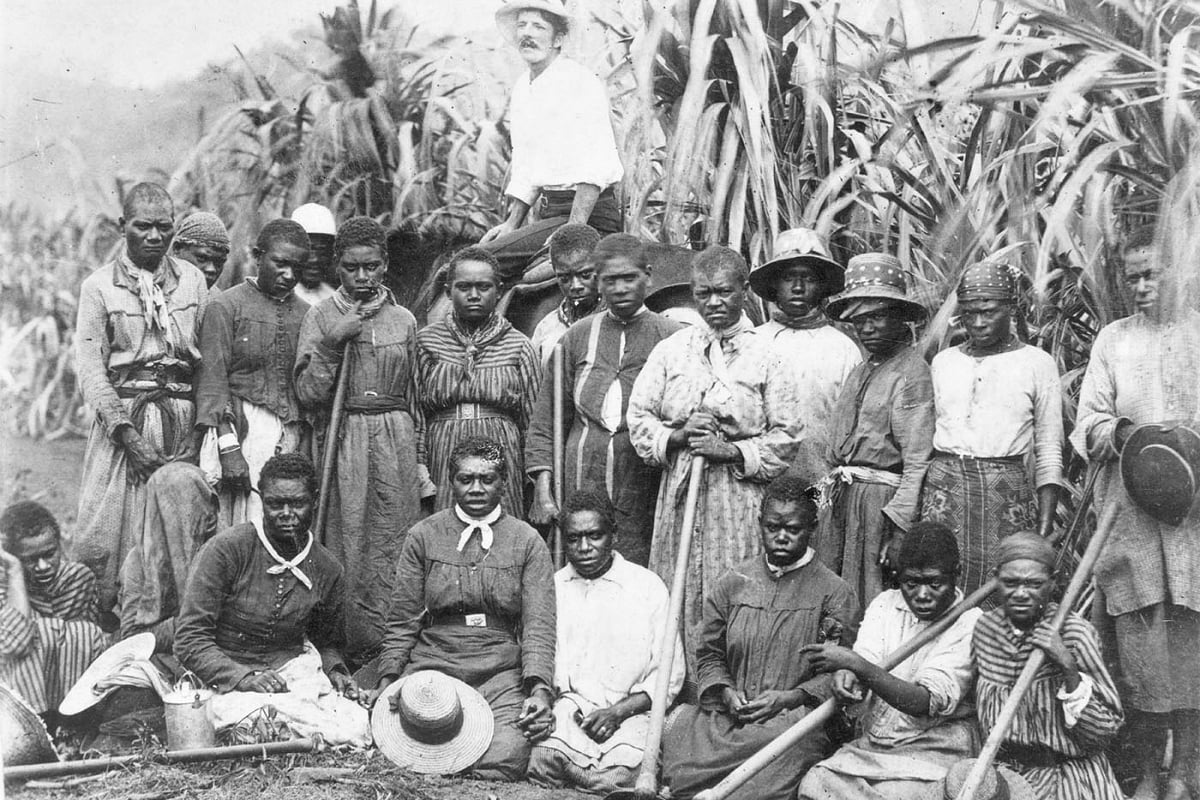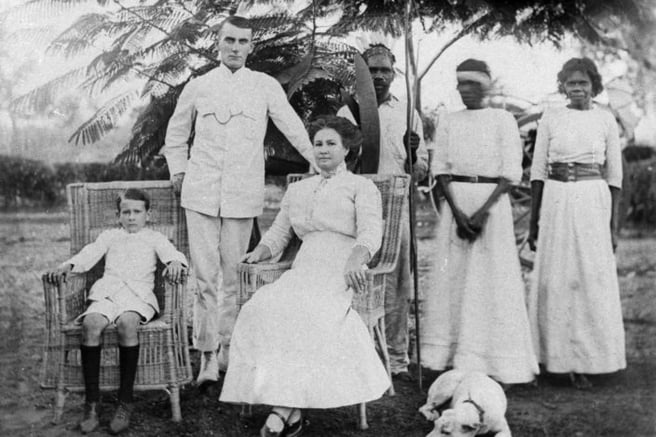
Aboriginal and Torres Strait Islander people are warned that the following contains images of deceased persons.
This week, Black Lives Matter protestors in Bristol toppled a statue of 17th Century British slave trader, Edward Colston.
The image of the monument tumbling into the city's harbour was splashed across front pages around the world; an evocative symbol of the anti-racism movement that's swelled since the death in custody of African American man George Floyd last month.
Asked for his thoughts about the statue's destruction and the possible removal of a London monument to Captain James Cook, Australian Prime Minister Scott Morrison made a strange claim: that Australia has no history of slavery.
"When you’re talking about Captain James Cook, in his time, he was one of the most enlightened persons on these issues you could imagine. I mean, Australia when it was founded as a settlement, as New South Wales, [it] was on the basis that there'd be no slavery," he told Sydney radio station 2GB.
"While slave ships continued to travel around the world, when Australia was established, yes, sure, it was a pretty brutal settlement... but there was no slavery in Australia."

